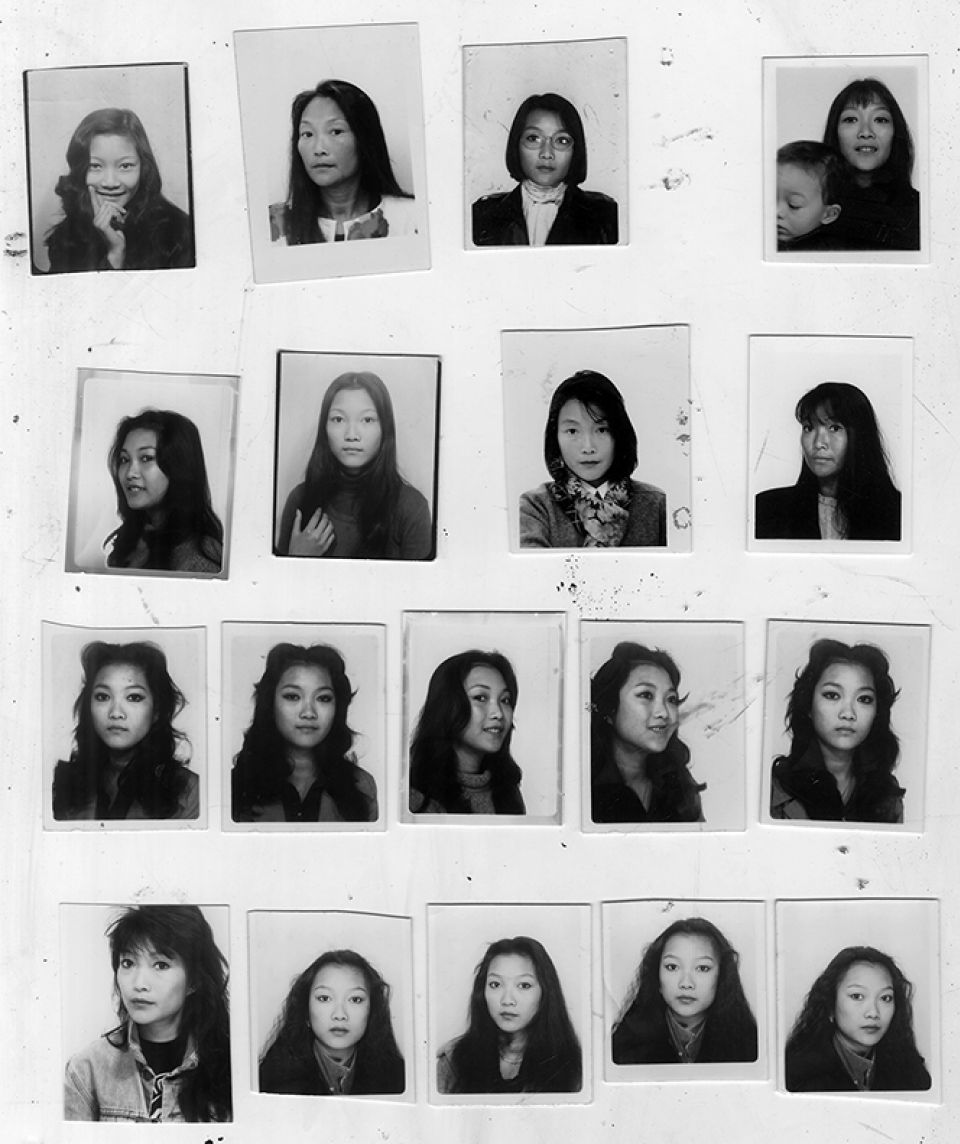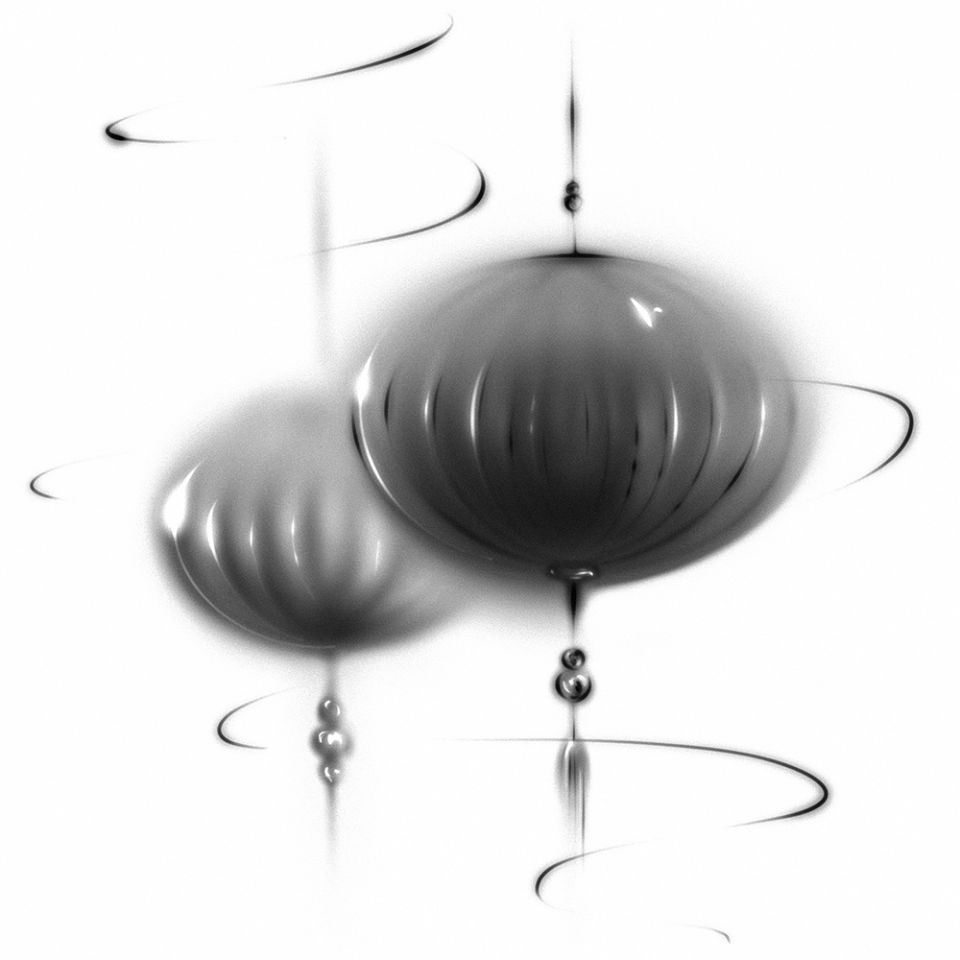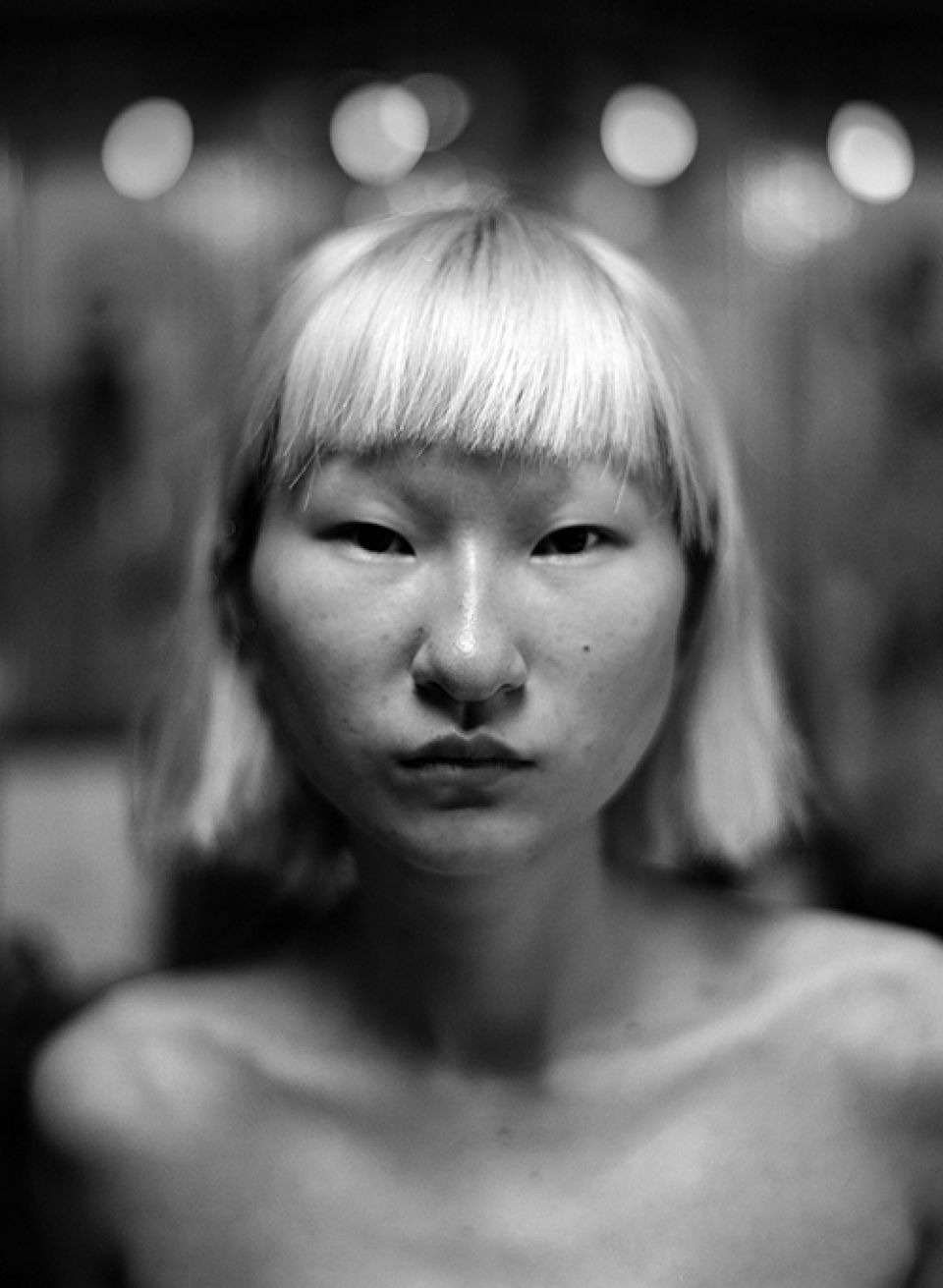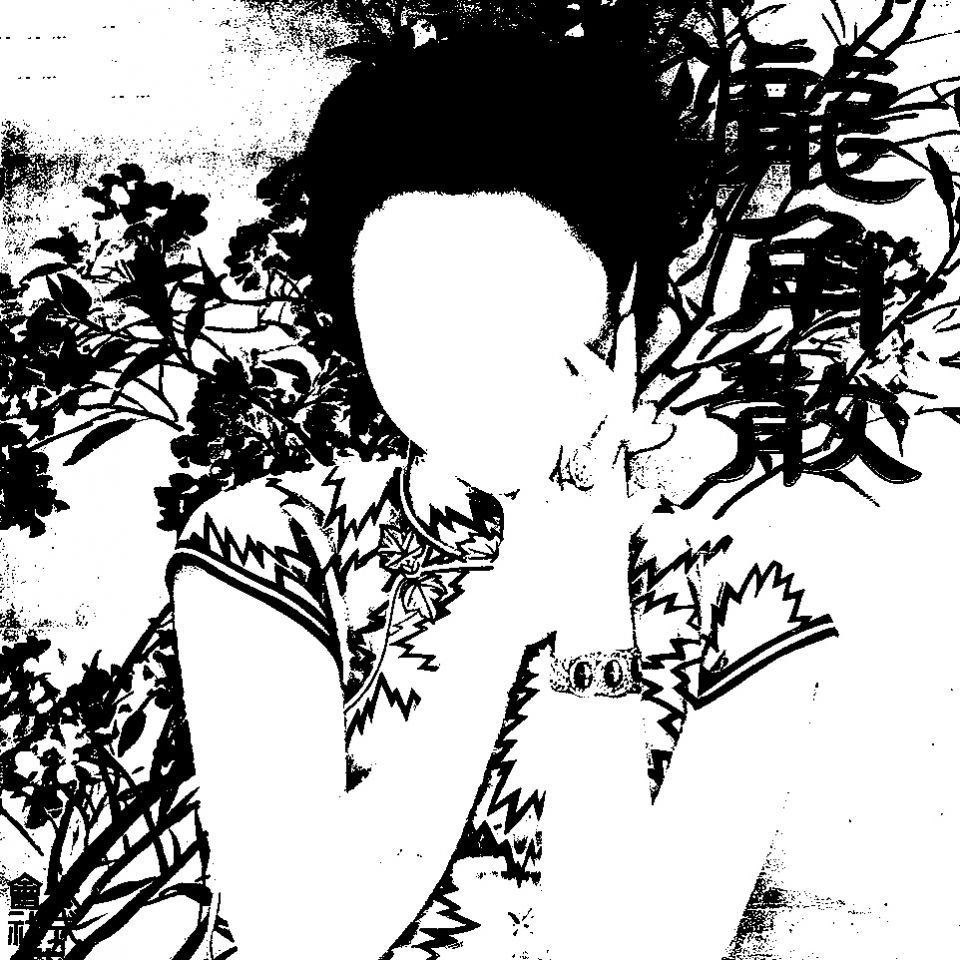№1 Gaze at the Other, Gaze of the Other
Clothing as Vessel
15.10.2020,
Born in the coastal city of Porto, Portugal, to parents from Wenzhou, China, Amsterdam-based artist Bruno Zhu is a polyglot whose diverse vernacular draws as equally from his formal training in fashion as from his upbringing at his parents shop: A Maior. Still in operation today and located in Viseu, Portugal, A Maior specializes in the import of fashion products and household wares, mostly from China, all of which serve as both backdrop to and substance of interventions that Zhu has set up on the premises over the last number of years. Featuring a roving cast of local and international artists, the shop project is an exercise in visibility and objectification, and an interrogation of what constitutes desire. For Zhu, having grown up witnessing clashes between the small but significant Chinese population in Viseu and the local disenfranchised residents of his hometown, it can often be easier to blend in than lash out when faced with the daily aggressions and micro-aggressions prevalent at the store—and echoed more widely in the global art marketplace in which he participates in today. Rising fascist tendencies in Europe, however, have spurred the artist to reckon with his othered self, which he achieves with a tailor’s precision and finesse, with A Maior as a crucial site of contestation. Visitors to the shop seeking to fulfill quotidian needs, or to score a deal, will find themselves unwittingly implicated in the myriad complexities of those whose lives facilitate their material everyday.

Illustration by Soljee Lee 이솔지
Bruno Zhu (BZ), Ming Lin (ML)
BZ
At a group dinner with young Portuguese artists last summer, the following happened. We were chatting about being artists in Portugal and when the conversation shifted to professional “success”, one of them turned to me and said: “You’re successful because you’re a chink and identity politics are so trendy right now.” I was silent, experiencing a sort of collapse in my head. This had come from a self-styled anti-fascist and anti-racist person that went to BLM marches. A white, middle-class guy, for whom being an artist is like, you know, radical or rebellious. I couldn’t believe this anti-racist, someone I considered a peer, had called me “chink” thinking it was provocative in a funny way. I had always thought of myself as well assimilated within my friend circles, no matter how contentious that term can be. I surely do try my best—so had I been delusional all this time thinking that I was a banana? Like, if I was truly the banana I say I am, I wouldn’t have found that offensive. But I did! It’s sad and also astonishing to me that I did!
I’ve been at odds with what representation can do, how vulnerable and easily co-opted it is. After that dinner, I was left with many questions about my identities. Can we embody the object that we’re expected to become while retaining a sense of resistance underneath? How not to be reduced to “trendy”, like a fixed thing that could be replaced by next year’s contemporary? Did he use a racist slur because there is too much representation of Asians, or not enough? Who gets to produce, and to turn that into a political question? Me, a member of an ethnic minority group in Portugal, or someone like him, a white Portuguese anti-racist? And for whom would this representation be for? Me, in order to dispel Western stereotypes of Asians cast onto me, or him, to create new ones about my kin?
I’ve been looking at the mirror and conveniently looking away from my own skin. I was looking at it holistically, going for “I am who I am“ vibes. This was manifested by calling myself a banana, to claim that as my identity with gusto, without politicising the skin of that banana, nor the whiteness of its interior.
—Bruno Zhu

Bruno Zhu, Man in the closet, at Kimberly-Klark, New York, 2019 (photo: Sebastian Bach / courtesy Kimberly-Klark and the artist)
ML
You were the first Asian person I’d ever met to claim your banana identity, which at the time felt quite inspiring and liberating. I think you literally said something like “I’m the whitest Asian boy in Europe,” so also owning your whiteness in a sort of tongue-in-cheek way.
Your reticence to engage in the identity politics conversation so readily, especially when media consumes and cannibalizes things, resonates with me and reminds me of the one time that I was ever called a banana, which was by another so-called banana on Instagram. It was quite startling because I considered this person woke enough I guess, and was surprised that they had taken the sentiment that I had expressed there totally out of context, and felt strongly enough to resort to racial slur. But then I was like, well I guess this is precisely where these conversations get diluted and misconstrued and really isn’t where we should be hashing out such debates… But then again, I’m still not sure where else to do so.
But I think during Covid, and in light of the uprisings in the US and the reverberations elsewhere, a lot of mixed sentiments, among Asian diaspora, have been stirred. I wonder if now, more than before, you have faced moments where you’ve had to contend with your identity and the ways in which it is instrumentalized within your industry?
BZ
Strangely enough, until recently my identity hadn’t really been brought up to frame my work. But the incident I mentioned before made me think how I navigate the process—precisely by not addressing it myself—and how that negligence projects outwards. I’ve been looking at the mirror and conveniently looking away from my own skin. I was looking at it holistically, going for “I am who I am” vibes. This was manifested by calling myself a banana, to claim that as my identity with gusto, without politicising the skin of that banana, nor the whiteness of its interior. It’s not that I’m now suddenly openly striving for an Asian diaspora excellence. It’s not about that. It’s not about becoming identitarian. It’s about facing the racialized nature that I’ve been subjected to, the hierarchy imposed on me that I thought I could avoid by not legitimising it. There’s a double frustration at work. On one side a failure in trying to have a life without sectioning my identity according to someone else’s terms, and on the other, watching friends who have benefited from ignoring my ethnic background now suddenly feeling guilty for not addressing it all along. But then why should I have the responsibility to point that out?
They are seeing me with new eyes, you can almost sense it. They look at me like, “I have to tell myself that he’s not only an artist, he’s an Asian artist, but he’s also Portuguese.“ You can tell they’re making maps in their heads.
The issue of race has only been brought up since I started working on the project in my parents’ shop. It kind of gives a genealogy to my work by situating it. It eases the understanding of my solo work for many people, because I have a very random and diverse body of work—photography, installation, textile, writing—and nothing really addresses a centralized subject matter. There’s a lot about desire, but the notion of desire is vague and ephemeral, so people are like, what does that really mean? I don’t go on about being a queer artist either—so then what is it? For a lot of people the shop project helps frame my work under the aesthetics of consumption. Suddenly “Bruno is addressing the commodified self, and the commodified self has these layers of identity that are racialized because it’s a business run by an immigrant family coming from China…”
I don’t feel my work has been pigeonholed by my identity yet. I’m aware it could happen, not avoiding it either. I’ve noticed how my presence has affected some people now that they’ve experienced a “woke wave”. They are seeing me with new eyes, you can almost sense it. They look at me like, “I have to tell myself that he’s not only an artist, he’s an Asian artist, but he’s also Portuguese.” You can tell they’re making maps in their heads. It’s funny because when they hear me talk, I don’t mention any of it. My background is completely banal. My family didn’t immigrate because of political narratives usually tied to newsworthy migrant stories. For many people then it becomes easy to forget my ethnic background. It also shows how many people associate racialization with something that’s morally bad or tragic only.

Bruno Zhu, Joy, at Kimberly-Klark, New York, 2019 (photo: Sebastian Bach / courtesy Kimberly-Klark and the artist)
ML
To me your work is quite autobiographical even when this is not being literally narrated. I think one of the ways we came in contact was through our respective shop work. I was occupying a shop in Hong Kong as a kind of experiment in inhabiting infrastructure, and you were starting work on the project at your parents’ shop that you grew up in. Very different registers and angles I think, but one of the things I remember distinctly was you telling me about experiencing racism at A Maior as a child, where slurs were directed at your parents, which they could not understand, but which you obviously could, which subsequently cultivated a sense of shame for you, to which maybe they were oblivious. But I’m thinking about the use of language in your work. On the shop project’s website, you use imprecise translation tools to have it be bilingual. I think this decision to experiment with and not be too precious or militant about language standardization is interesting, and I wonder if it is significant for you?
This is something I’m grappling with now when I explain my work in my home country. I feel like I’ve been denied the precision of a specific language. Then what am I really talking about when I say language?

TATA DIVINE, by Steven Warwick at A Maior, 2020 (courtesy A Maior and the artist)

Betty (2017), by Spencer Lai, in the group show Morangos com Açúcar at A Maior, 2020 (courtesy A Maior and the artist)
BZ
I’m basically the result of terrible parenting. My parents only taught me the Wenzhounese dialect. They never bothered to teach me Mandarin. Communication with my parents has always been terrible because we don’t have a grounded common language. The amount of dialect they taught me is very limited. We only talk about essential things, like “are you hungry or not hungry, are you OK or not OK?” Because I left Portugal when I was seventeen, I never developed my critical speech form in Portuguese either. This is something I’m grappling with now when I explain my work in my home country. I feel like I’ve been denied the precision of a specific language. Then what am I really talking about when I say language?
My mom is curious about what I do and wants to have deeper conversations besides “are you hungry?” So I’ve been getting on with it in broken dialect and using Google Translate to explain what performativity means to me, or the shop as a fictive model to generate new life that is not essentialist. I want her to see an open future, instead of how these shops are usually perceived locally. Chinese-owned businesses in Portugal have a reputation for selling cheap stuff: you go in for something cheap and you come out with something that will break in two minutes. They are at the bottom of the shopping chain. When I started doing shows there it was as if I wanted to reify that, owning it, wearing that label to show that even at the bottom life can still be created somehow.
It’s not like I’m trying to create an entanglement of languages or produce a polyphonic linguistics in my practice. I’m not interested in that because I don’t want to aestheticise my problem. But translation becomes an exciting issue in the shop context. When we translate the soap opera summaries we use as exhibition texts, because they are very idiomatic in Portuguese they don’t seem coherent after a literal word-for-word translation to English. I love that deliberate misencounter, and the Chinese version keeps that spirit via Google Translate. Perhaps things should get lost in translation more often.
Also, being gay and not out to my parents turns the idea of streamlining into a paradox, because I make versions of me for people in my private life. With my work recently becoming, inevitably, more autobiographical, I’m understanding that it’s not about streamlining a flow between languages, but rather to acknowledge the tensions between them. The inability to express leads me to express too much, so language is completely productive and generative within my work.

Tiger Mountain, by Francisca Carvalho at A Maior, 2018 (courtesy A Maior and the artist)
So what started as a need to create another body quickly turned into a eulogy to fashion. I think as a visual artist anything clothing related is dead, while a fashion designer creates a system of clothing, a wardrobe, for a potential life or lives.
ML
To talk a little bit about the role of fashion in your work, I think I previously read it as partaking in this return to your parents shop, and sort of reclaiming those cheaply-made goods you spoke of, acknowledging them as generative in a different sort of way, perhaps as charting certain channels of desire. Would this be an accurate reading?
BZ
My work related to fashion started around the same time I started the shop project, but it wasn’t conceptually linked, then or now. Your reading of the shop—thinking in terms of circulation, an ouroboros of desire, funneled through the structures of consumer society—I totally agree with. Fashion was mostly a formal decision at the time. I had a sudden need to have a body, a literal body for myself to play with. I was feeling very alone and clothing became this go-to thing because I studied fashion design. It was fairly intuitive to grab a piece of clothing and make the person that I needed. So what started as a need to create another body quickly turned into a eulogy to fashion. I think as a visual artist anything clothing related is dead, while a fashion designer creates a system of clothing, a wardrobe, for a potential life or lives. As an artist I’m receiving the so-called potential and locking it into a network of signifiers, giving an end to it. This was something I couldn’t let go, this thought of creating a body that was already dead. The body being the vessel which—no matter how hard I worked on it, however twisted or developed, because I make patterns for them—is dead on arrival. Offering dead bodies through my work is a proposal to meet us on a different plane—be dead with us? I’m thinking about failure as a state, and clothing being a vessel to it. In that kind of schematics of failure, clothing operates as a vessel to dead performance, to dead movements.
In that sense, my relationship to fashion in my solo work is at the tail end of goods in circulation. It’s more about goods nearing their expiration dates, their lives already lived, ready to be reincarnated.
This conversation took place in October 2020.
BRUNO ZHU
is an artist and a member of A Maior, a curatorial program set in a home furnishings and clothing store in Viseu, Portugal.
MING LIN
is an artist, writer and researcher who lives and works in New York.
SOLJEE LEE 이솔지
is a full-time graphic designer working in the beauty industry, and a part-time illustrator. Currently based in Salt Lake City, Utah, USA.
related content

Reputation Meets Opportunity
—
Through her extensive experience of China-UK transnational education projects, Dr Cheryl Qiumei Yu 喻秋梅 has had a front row seat in observing how appetites for an international arts and design education reflect changing East-West relations and socioeconomic realities in China and East Asia.

A Letter from a Voyager
—
A letter from the editor describing her journey to Ying Xiang.

Introducing and Curating Fashion in China
—
Pooky Lee shares his approach to communicating fashion in today’s China, shedding light on the actual status of an industry heavily dependent on celebrity culture, and his own predilection for a conversation beyond commerce.












